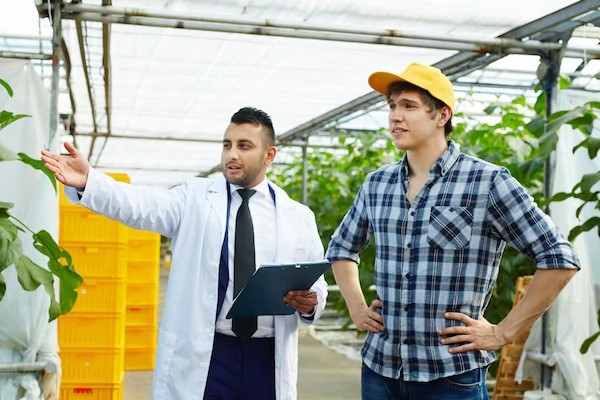The agricultural industry is not only growing crops. It provides food to everyone on this planet. Agriculture fuels our economies and fuels our bodies.
Below are some things you need to know before you jump headfirst into this beastly industry. Be warned, it is not a job or a career you will come to hate, but you will learn to love it.
1. It is Not Quite the Bargain it Seems
Contrary to popular belief, it may not always be the bargain it seems. For those considering a career in the industry, it’s important to understand the potential pitfalls, such as the challenges posed by unpredictable weather, changing consumer preferences, and, in some cases, fraudulent marketing.
The industry also involves a learning curve as well as potentially high expenses and long hours. It’s crucial to be aware of the hazards of pesticides, insecticides, and fertilizers that may be used and the dangers they present to both livestock and the environment.
Additionally, the risks of animal waste and listeria in agricultural settings should be taken into consideration. Ultimately, despite the potential rewards of working in the farming industry, it’s important to be mindful of the obstacles and risks involved in the agricultural industry.
2. It Entrenches Inequality
The agricultural industry has long been entrenched in inequality, and in today’s world, this inequality is often intensified by corporations and governments. Agricultural workers, whether they are producing food or raising animals, rarely benefit financially from their labor.
The wages are often low, with the majority of profits going to the owners. This inequality has led to an increase in poverty and exploitation of already disadvantaged communities. Poor access to resources and weak power structures have led to a lack of representation and control over decisions that affect them.
3. It has been linked to Zoonotic Diseases
The agricultural industry has long been linked to zoonotic diseases, or contagious diseases that can be passed from animals to humans. Diseases such as SARS, avian flu, and swine flu can all be traced to contact with animals and animal products being used in agriculture.
Human contact with confined animals on factory farms and the resulting waste disposal, along with the use of synthetic chemicals, can provide a great breeding ground for disease-producing pathogens. In addition, the overuse of antibiotics in livestock has the potential to create antibiotic-resistant diseases.
4. It Fosters Antimicrobial Resistance
Antimicrobial resistance is an emerging health challenge that has been linked to the agricultural industry. As agriculture continues to become more mechanized and reliant on large-scale production, the use of antibiotics on animals is increasingly becoming an important factor in agricultural production.
More and more, antibiotics are being used in lower doses to prevent or control disease-causing organisms in food-producing livestock or to stimulate growth. Unfortunately, this type of low-dose antibiotic use, as well as the overuse of antibiotics, can contribute to the growth of resistant bacteria.
5. Farming is a Job, a Way to Earn Money
Farming is a job that anyone can start to earn money. It is a rewarding job and is important to the agricultural industry. To be successful in farming, there are a few things a person needs to know. Farmers need to understand the basics of growing crops and raising animals.
It’s also important to understand the climate of the area, the pests and diseases that could affect crops, and the methods of protecting their land from destruction. Understanding the economics behind farming is also valuable so that farmers can diversify their production to maximize their profits.
6. Farmers Care About the Land and Water
The agricultural industry is one of the most important industries, and farmers are its most important stakeholders. Farmers care deeply about the land and water resources that they rely on for their livelihood.
Healthy land and water mean a more productive and prosperous agricultural sector. When farmers manage land and water sustainably, they not only ensure their own productivity, they also protect the environment around them.

7. Farming is High-Tech
The agricultural industry is increasingly becoming more and more high-tech as we move into the future. Farmers are no longer relying on traditional methods of cultivation and animal husbandry; modern industrial farming is incorporating automation, precision technology, GPS tracking, grain hopper bins, and more to become increasingly efficient.
Advanced farming techniques are being used to optimize production, track water usage, and cultivate sustainably and responsibly. Farmers now have access to the latest gadgets, data management and analysis tools, and sophisticated technology to ensure maximum yields and cost savings.
8. It is an Inefficient Use of Land
The agricultural industry can be inefficient, especially when it comes to land use. Farms are often set up in a way that requires large amounts of land, but only a small percentage of that land is actually productive.
Additionally, inefficient irrigation practices, such as spreading fertilizer further than necessary, can lead to increased cost and energy use. In order to make the agricultural jobs industry more efficient, it is important to invest in technologies that can improve land use efficiency, such as precision agricultural tools.
Learn More About Agricultural Industry
The agricultural industry is an incredibly complex subject, and understanding it better is vital to appreciating the importance of food production and rural livelihoods.

